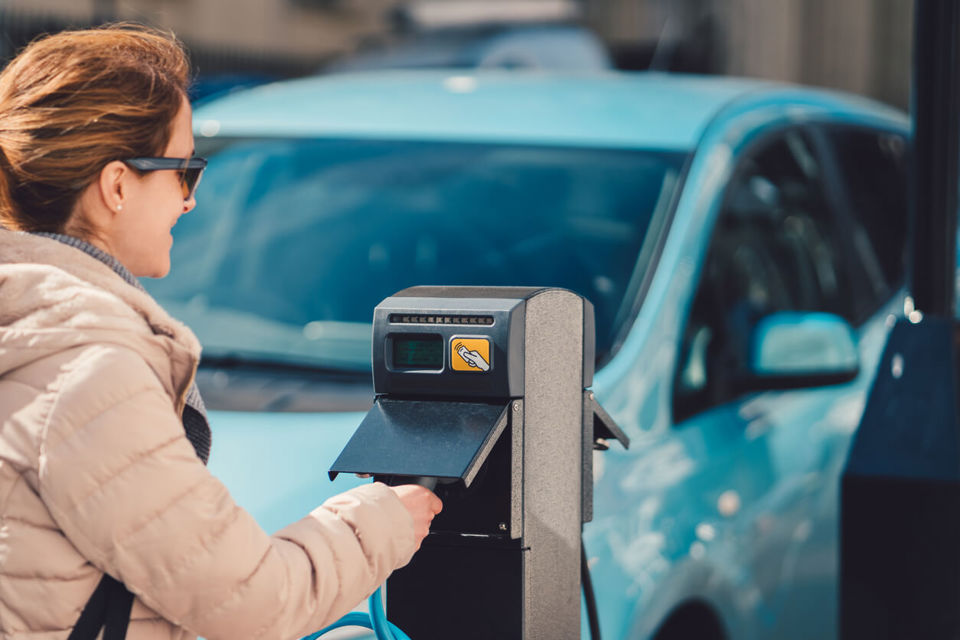Companies become early adopters of electric vehicles for a variety of reasons. For some, it’s about their public image; others have to if they are to meet tender demands; some believe they have a corporate social responsibility to lead the way. Few do it in the belief they will save money, however.
Two organisations, ISS and the Environment Agency, have very different reasons behind their uptake of electric vehicles.
For ISS, a global facility services provider, a recent contract win with Transport for London (TfL) provided the reason to invest.
As part of the tender to supply cleaning of bus depots and bus stops for TfL, ISS offered the choice of electric Renault Kangoo vans instead of the specified Euro 5 diesel. TfL was keen to look at the alternative and this resulted in the immediate delivery of the first six Kangoo ZE electric vehicles into the UK.
ISS group fleet manager Nigel Rowden says: “ISS sees the introduction of electric vans on city and site-based contracts as a great environmental alternative for both customer and ISS. We look forward to offering this alternative vehicle to customers in the future, including the NHS and other large site-based organisations that we currently deliver a service to.”
He adds: “This type of vehicle is not the panacea for the environment but will make a contribution and Renault’s Kangoo ZE is an alternative to fulfil that requirement. All fleet managers need to have electric vehicles in their tool box.”
The TfL contract will see the Kangoo ZEs travel around 25 miles a day in London. They will be taken to a central compound to be charged overnight ready for operations the following day.
ISS intends to run the vans over five years, but the initiative isn’t without its concerns. “There’s no secondhand market so leasing companies are nervous about what they will do with the vehicle at the end of contract. They are also nervous about battery life,” Rowden says.
However, he believes Renault offers the perfect solution with its battery leasing scheme.
“Leasing the battery separately gives comfort to the leasing companies and LeasePlan has been very supportive on this,” he says.
“The business model isn’t clear cut but it’s important from an environmental point of view for the company.”
He adds: “We are running out of oil and we have to do something. Maybe fleet managers have to lead the way by getting these vehicles out into the marketplace.”
ISS uses solar panels on its UK head office in Woking and Rowden believes electric vehicle manufacturers might consider a similar approach.
“It could act as a range extender for greater confidence,” he explains.
A global commitment to environmental measures made ISS an early adopter of electric vehicles, even without the TfL contract win giving the extra impetus.
For the Environment Agency, however, the need to be seen as a market leader in all things tinged green means it is constantly at the forefront of alternative fuels.
Trials of biofuels have seen the Government body gradually move from a 5% blend of used cooking oils to a 22% blend. It is now doing 25% in 136 vehicles which will rise to 300 vehicles next year.
Meanwhile, the agency has also recently started a 50% blend on around 20 out-of-warranty Ford Transits, Land Rovers and Mitsubishi Shoguns.
Unsurprisingly, it has a number of electric vehicles on its fleet, both original manufacturer and after-fit.
The agency first dipped in with a Smart Ed trial in Newcastle five years ago, but the limited 30 to 40-mile range and two seats weren’t feasible. It has been running a Mitsubishi i-Miev for the past year.
Financial figures comparing the i-Miev to a diesel Ford Fiesta show a 1.5- to 4.8-tonne CO2 saving for the Mitsubishi over three years depending on the use of renewables as the energy source.
While it is slightly more expensive to fund, on a CO2 savings per cost equation, the i-Miev can be justified.
It’s not without its issues, however. “We have had people run out of charge and had to be recovered,” says Dale Eynon, Environment Agency head of fleet.
“Some were their fault; others were down to a change in weather conditions so they had to use heaters and wipers which used up more charge. The range hasn’t been as good as we expected, though – it’s been 40 to 50 miles typically; we had hoped for 60 to 70.”
The Environment Agency is about to take delivery of the Nissan Leaf which promises higher range and is a bigger car.
It has bought the car and will take it around all its regions to test in a variety of applications.
Two portable charging units will travel with the Leaf.
They can be clamped to a wall and a camping style pack can be installed for overnight charging.
At a cost of £1,000, it’s far cheaper than installing a charging point at every location.
The Agency also runs a Peugeot Expert converted by Allied Vehicles which, over 100,000 miles, will emit seven tonnes of carbon versus a comparable Transit Crew Cab’s 37 tonnes.
The Expert operates at the Thames Barrier in London with its own charging point. Environment Agency business manager Mark Ford-Powell believes pure electric vehicles will only ever be suited to this type of niche application.
“People expect the Environment Agency to have a huge fleet of electric vehicles, but there’s no point when they aren’t going to work in large parts of where we work,” he says.
“We come under pressure to try these products but we have to be sensible about what we are buying.”
















Login to comment
Comments
No comments have been made yet.